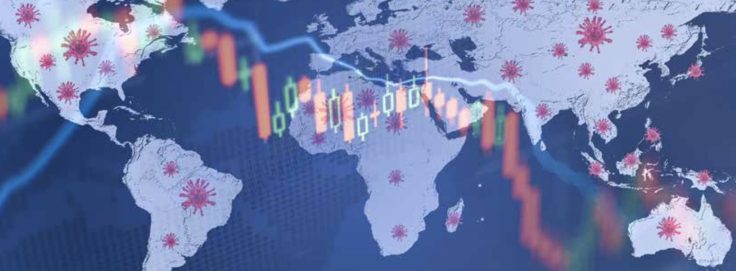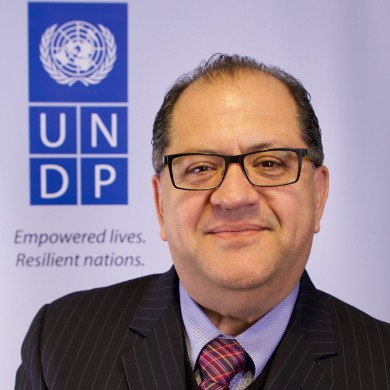
Search
COVID-19 as a Challenge to Governance

We are in a period of great uncertainty.
Today, Latin America is the epicentre of the COVID-19 pandemic. On various fronts, we are facing a situation for which we have no precedents to draw on when seeking explanations or devising possible solutions. Indicators of all kinds, be it health, economic, social or cultural ones, are reaching levels that we could not have anticipated just a few months ago.
The uncertainty is total, in particular with regard to two points: the magnitude of the problem we are facing, and its duration. How much is the pandemic affecting countries in the region? How much longer will we have to wait before returning to normality. Contributing to this inability to grasp the problem is, first, the lack of knowledge we have about the virus and its processes, and, secondly, the lack of information regarding its extent.
With respect to the former, there is not much that we as UNDP can do or say, as it is the domain of scientists and their laboratories to find answers in this field.
The latter, in my opinion, has to do with the limited testing capacity of countries in Latin America and the Caribbean, and this does fall within our scope of action.
I would, therefore, like to outline my first message: given the disparate testing capacity of the countries, it is impossible to characterize the problem precisely.
The testing capacity explains, at least in part, what we know so far about the scale of the pandemic. Indeed, those countries that have tested the most, like Chile, Peru, and Panamá, are also those with the most positive cases per 100,000 people. This implies that, if countries were to test more, the magnitude of the problem would be greater than we think.
Most countries have done very little testing or simply do not report any official information about it.
Until this situation is reversed, the governments of the region will continue to operate blindly as they face the greatest crisis in recent times.
Identifying and locating those who are most vulnerable to falling into poverty represents a major challenge in the region.
It is also essential that testing is coupled with strategies of isolation and contact follow-up. Testing is essential, but it is not enough if there is no subsequent isolation of positive cases.
My second message is this: while containment measures will deepen the recession, projected at -9.4 % for the year 2020 in the region (IMF), failure to implement them will also have severe economic consequences in the long term.
In this pandemic, the governments of the world are faced with the challenge of reconciling the implementation of containment measures to stop the spread of the virus with the need to keep the economy functioning, and, thus, avoid a deeper crisis with the already known consequences this will have on poverty levels.
The search for a balance between doing nothing to stop contagion and completely shutting down all economic activities is particularly complicated in a region like ours, where weak health systems justify strict quarantines, but where there is limited budgetary provision and access to financing, which justifies keeping the economy going.
All of that in a region that is also suffering from a crisis of governance and confidence in institutions –on average, only 22% of the population in LAC countries had some level of confidence in governments in 2018 – means that the challenge of resolving the tension between protecting lives and protecting livelihoods is expressed in the low levels of compliance with the measures decreed.
This crisis will not affect everyone in the same way. Latin America and the Caribbean is a middle-income region, but not a region with middle-class populations. The majority of the population remains vulnerable to becoming poor in the face of a shock. In fact, the number of poor people in the region is expected to increase by 23 million as a consequence of COVID-19.
Inequality has deepened further, as those with resources can protect themselves, whereas those who have no money are more at risk.
Only a small part of the work can be done online, compared to other regions, thus affecting the productivity of the countries. On the other hand, the scale of informal employment threatens the effectiveness of employment protection and unemployment measures adopted in the context of the crisis.
The poorest people are registered as beneficiaries of pre-pandemic social assistance programmes. This facilitates their identification and the delivery of assistance. However, a large proportion of informal workers who were not poor prior to the crisis are outside those registers, and are, therefore, excluded from both employment protection measures and social assistance.
Women are another group affected, as more than 80% are employed in low-productivity sectors. For this reason, the distributional impact of the shock must be a priority in the design of responses and measures to deal with it.
Identifying and locating those who are most vulnerable to falling into poverty represents a major challenge in the region. As demonstrated in this paper, the Multidimensional Poverty Index of El Salvador, part of the UNDP Public Policy Paper Series, can be a mechanism to identify pre-existing conditions of poverty that make some households more at risk than others in the face of the pandemic.
For the first time since 1990, the Human Development Index will fall. We are in a difficult scenario where failure to take action will cost lives, and where the economic cost of the measures seems disproportionately high.
However, this crisis, seen as a problem of governance, can also be an opportunity to recompose the relationship between people and institutions, and between people themselves. It may be, for example, that confidence in institutions will be restored if governments are perceived to be responding adequately to the crisis and communicating their decisions in a clear and transparent fashion, incorporating the viewpoints of multiple stakeholders.
This crisis can also act as a catalyst for a change in the current configuration of power. Latin America and the Caribbean is a region with a historically fragmented social contract, with the middle and upper classes choosing not to receive public services, taking with them financial incentives and public pressure to invest in quality improvements.
With the start of COVID-19, people who had previously resisted improving a universal health system may begin to realize that we all benefit from having a better public system. This is true not only in the context of universal health services, but also in public services such as education and connectivity.
Finally, from a political economy perspective, the crisis has not only changed public opinion, but has also created a new context for action. By simultaneously changing ideas, redistributing power and changing incentives in policymaking, reforms that were previously considered radical or impractical are now under discussion as viable options, like universal public services and social protection schemes.
This article was published in Dimensions 10.

















